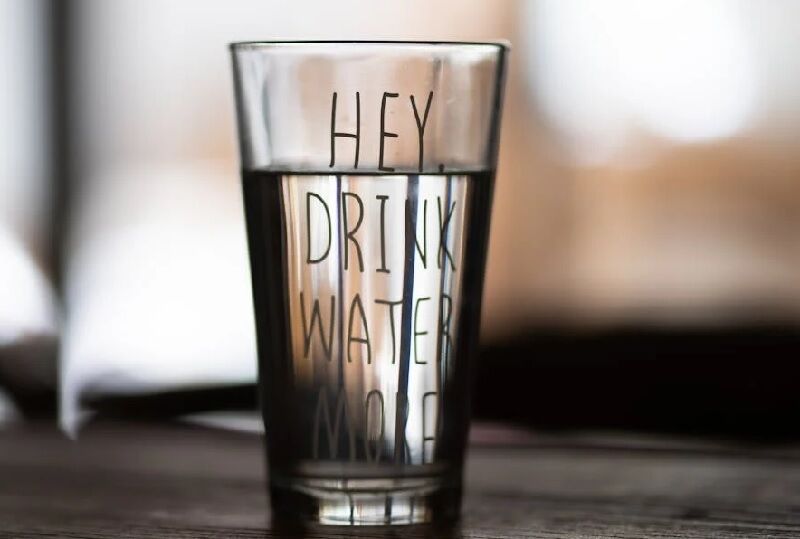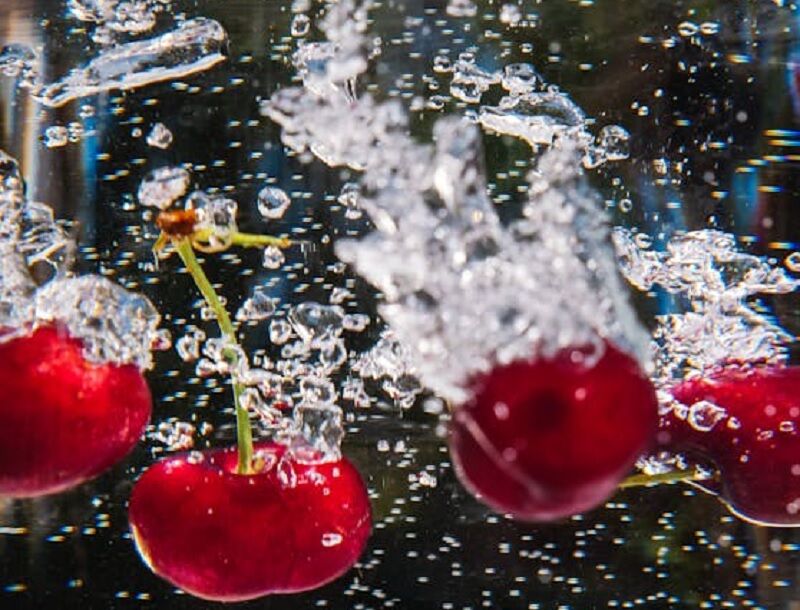Why staying Hydrated is important for your health

Have you ever questioned the necessity of consuming an impressive eight glasses of water daily? This isn’t just for satiating your thirst; it helps your body to perform at its peak. Indeed, maintaining adequate hydration is pivotal for your most valuable asset – your health.
Approximately 60% of the human body comprises water, and sustaining this ratio is crucial. Hydration significantly contributes to physical performance, as well as thwarts headaches and constipation. But, what transpires if our environment or actions interfere with this equilibrium? And what role does hydration play in accelerating recovery from ailments?
Explore the subsequent sections to gain insights into the scientific logic underpinning hydration, the repercussions of dehydration, and why this extends beyond the routine ‘8×8’ guideline. Regardless of whether you’re feeling parched, let’s investigate why you should frequently go back to your water bottle.
The importance of hydration for health
Let’s dive right in and discover how your water bottle can be your secret superpower, with hydration being so closely linked to overall health. We’re here to tell you why good ol’ H2O is worth your attention all the time, not just sometimes.
How water works
Did you know that nearly 60% of your body is all water? It’s like the lifeguard of your cells, tissues, and organs. Every single bit of you needs water for a splendid performance. It’s the unsung hero that keeps your body temperate, helps you discard body waste and even cares for your joints like a good friend. But its cape doesn’t stop flapping there. Water plays a big role in how you digest food and absorb those all-important nutrients. Remember to drink up, folks. Taking care of your hydration is not just good sense, it’s like treating your own body like a V.I.P.
When you’re running low on water
Just as the name suggests, dehydration is a real downer. When your body is running on low, your health can take a serious hit. All sorts of things start to dip, including your physical performance, especially if you’re a gym enthusiast or if you’re out and about in the hot sun. Next time you’re feeling pooped after a workout, maybe reach for a water bottle before a protein bar!
Here’s some more food (or, should we say, drink) for thought: even a wee bit of dehydration can muddle with your brain. Losing just 2% of your body’s water can make you grumpy, less alert, and give you a nasty headache. And if your fluid levels drop by 6-10%, it might even frazzle your memory and make you more anxious and tired. Suffice it to say, staying well-hydrated isn’t just important for your body; it’s also a life-saver for your mental well-being.
How much water should you drink

Let us discuss a salient topic related to human health, namely hydration. Water, an essential, tasteless liquid, is crucial to health but the amount one requires can depend on an array of distinct variables.
Analysing individual water requirements
Hydration is not a universal requirement. Instead, factors such as physical constitution, age, gender, daily activities, geographical location, and overall health significantly affect personal water requirements. For instance, newborns contain approximately 78% water at birth, which reduces to roughly 65% by their first year. Gender also presents differences, with males typically retaining more water than females. Moreover, physical activities that keep you fit particularly high exertion or exposure to elevated temperatures, increase the demand for hydration due to increased perspiration.
Certain health conditions may alter one’s hydration needs. Individuals struggling with nephrolithiasis, as well as pregnant or lactating women, must pay particular attention to adequate fluid intake.
In 2013, researchers from the Centers for Disease Control and Prevention published a study illustrating the significant variance in adult daily water consumption. The findings revealed that 7% consumed no water, 36% consumed between 1-3 cups, 35% consumed 4–7 cups, and 22% ingested 8 cups or more.
The overriding implication here is that there is considerable diversity in how much water individuals consume, and everyone’s needs differ. Consequently, it is crucial to be cognizant of one’s unique requirements.
Determining adequate hydration
Identifying whether you are appropriately hydrated can be as critical as understanding how much to drink. Urinary output provides a reliable indicator. Adequate hydration will result in clear or light yellow urine. However, dark yellow, akin to the color of amber, suggests dehydration necessitating an increase in water intake.
Signs of insufficient hydration can include thirst, dry oral cavity, fatigue, headaches, vertigo, or the inability to cry in response to emotional stimuli.
If you observe these symptoms, it may warrant reassessment and adaptation of your hydration strategy. Remember, remaining properly hydrated is not just about allaying thirst, but also about maintaining optimal wellness to perform daily tasks effects.
Hydration sources

Health maintenance champions hydration as a key factor, and it isn’t solely about drinks. Your body derives its hydration from multiple sources. The spectrum of hydration spans from conventional water and various beverages to specific foods, confirming that hydration is versatile.
Water plus additional beverages
Unadulterated water holds the highest rank among hydration sources. The water exiting your body through processes such as sweating, urination, and exhaling needs to be adequately replenished. An example of this can be observed in athletes who utilise a straightforward technique: weighing pre and post-workout. Corresponding to each pound of sweat lost, they consume a pint of water to rehydrate.
Hydration and more are offered by sports drinks, another category of liquids. They fulfil a dual agenda of providing both energy enhancement via carbohydrates and electrolytes contained and aiding water absorption. It is highly suggested, though to monitor the sugar and calorie levels in these beverages.
However, every drink is not created equal. Energy drinks might seem like the obvious choice for hydration and energy gain, but are typically replete with caffeine and other overstimulants such as guarana, ginseng, or taurine which aren’t essential for the body. The considerably high sugar level found in these drinks relegates them to subpar hydration sources.
The contribution of select caffeinated drinks like tea, coffee, and soda to your daily water dose might surprise you! Just ensure you consume them in moderation to avoid health issues.
Foods for hydration
Hydrating foods, primarily fruits and vegetables, form an excellent segment of hydration sources. With high water content, they also come with the added benefit of providing vitamins and other nutrients. Food items such as watermelon, tomatoes, and lettuce, play a dual role, offering hydration and nutrition.
Combining all these hydration sources aligns with the conventional thought of consuming eight glasses of water daily. However, your hydration needs are as unique as you are – it’s not a one-size-fits-all approach. Stay attuned to your body’s signals for optimal hydration.
Staying hydrated for different groups
An athlete’s hydration needs differ significantly from an average individual’s due to their intense physical activities as gymming. Intense exercise results in sweat—your body’s natural cooling mechanism—leading to water loss. Experts reveal that losing as little as 2% of your body’s water content can considerably impair physical performance. Therefore, athletes require diligent hydration to sustain optimal performance.
Fluid loss can also influence the brain’s functioning, as studies demonstrate that even mild dehydration (a loss of 1-3% of body weight) can impair various aspects of brain function. For instance, a fluid loss of 1.4% after intensive exercise was found to impair mood and concentration in young women, and increase headache frequency. A similar study in young men showed a detrimental effect on working memory and increased feelings of anxiety and fatigue from a fluid loss of 1.6%.
Sports drinks can offer assistance if athletes plan to exercise at higher-than-normal intensity for more than an hour. Loaded with carbohydrates and electrolytes, these drinks provide an energy boost and help your body better absorb water. However, a conscious selection of sports drinks is necessary, as some come with high-caloric value due to added sugars and may contain high levels of sodium (salt). Further, the serving size should be monitored, as one bottle usually contains more than one serving.
You can also check out the top 5 In-house self-care activities to enjoy, Consider the inherent delight of unexpectedly discovering forgotten currency in your pocket or receiving an unexpected phone call from a cherished acquaintance. Unanticipated pleasantries of this nature can profoundly impact the overall essence of your day. Consequently, might I suggest incorporating these delightful instances into your daily protocol at home.
Latest Thailand News
Follow The Thaiger on Google News:


























